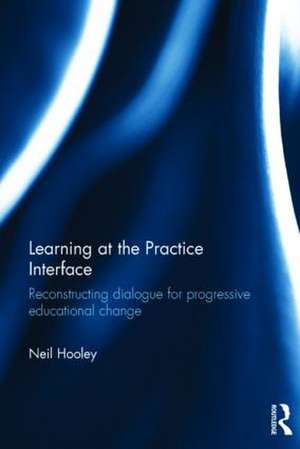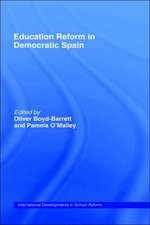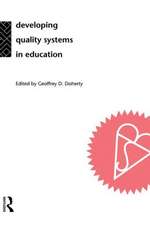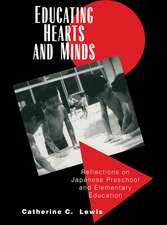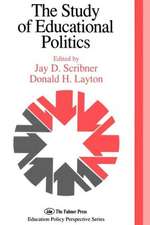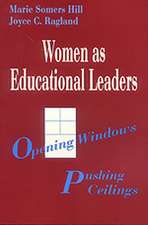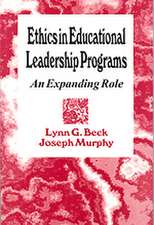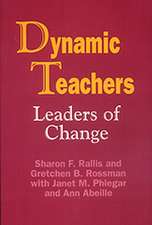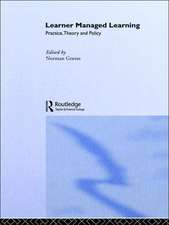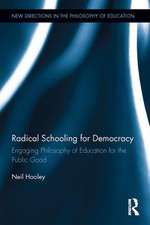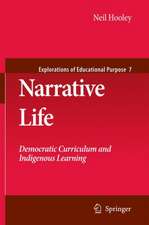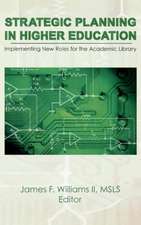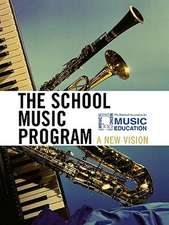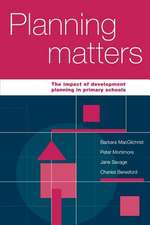Learning at the Practice Interface: Reconstructing dialogue for progressive educational change
Autor Neil Hooleyen Limba Engleză Hardback – 8 mai 2015
In confronting the contradiction between social marginalisation and educational expectations, Learning at the Practice Interface explores new approaches to education systems and knowledge production. Part A raises questions regarding knowledge, pedagogy and social justice that are central to schooling and which support values weakened by neoliberalism. These values include democracy, equity, community collaboration and deference towards knowledge and culture not dependent on wealth and status. Part B explores practical issues related to how knowledge is engaged in the school curriculum. This discussion goes to the heart of learning at the practice interface and suggests that the lack of epistemological strategies based on sociological description has created serious estrangement from school knowledge for large numbers of students. Part C discusses a critical view of knowledge in relation to research, teaching and learning and the education profession generally. The need for a new reflexive sociology of knowledge is proposed to guide educational dialogue and action such that connections can be made between progressive sociology and epistemology in the interests of all children.
This book will be of interest to academics and researchers in the Sociology of Education, Teacher Education, and Education Reform.
Preț: 1054.71 lei
Preț vechi: 1286.24 lei
-18% Nou
Puncte Express: 1582
Preț estimativ în valută:
201.84€ • 219.17$ • 169.55£
201.84€ • 219.17$ • 169.55£
Carte tipărită la comandă
Livrare economică 22 aprilie-06 mai
Preluare comenzi: 021 569.72.76
Specificații
ISBN-13: 9781138851290
ISBN-10: 1138851299
Pagini: 228
Ilustrații: 27 black & white tables, 1 black & white halftones, 9 black & white line drawings
Dimensiuni: 156 x 234 x 18 mm
Greutate: 0.45 kg
Ediția:1
Editura: Taylor & Francis
Colecția Routledge
Locul publicării:Oxford, United Kingdom
ISBN-10: 1138851299
Pagini: 228
Ilustrații: 27 black & white tables, 1 black & white halftones, 9 black & white line drawings
Dimensiuni: 156 x 234 x 18 mm
Greutate: 0.45 kg
Ediția:1
Editura: Taylor & Francis
Colecția Routledge
Locul publicării:Oxford, United Kingdom
Public țintă
Postgraduate and ProfessionalCuprins
Part A: Concepts and Commentaries 1. Re-evaluating Knowledge 2. Progressive Pedagogies 3. Schooling for the Majority 4. Social Justice, Culture and Knowledge Part B: Knowledge Practices and Testing 5. Literacy, Numeracy and Test Distortions 6. Reconceptualising Mathematics, Science and Technologies 7. Creative Knowledge Formation in the Humanities and Arts 8. Indigenous Learning and Culture Part C: Critical Theorising and Research 9. Research as Bricolage 10. Reflexive Teaching and Learning 11. Constructing Professionalism 12. Towards a New Reflexive Sociology of Knowledge
Notă biografică
Neil Hooley is a lecturer in the College of Education at Victoria University, Melbourne, Australia.
Descriere
This book investigates professional practice at the interface of sociology and epistemology for progressive educational change. It suggests that orthodox sociology and sociology of education have not sufficiently analysed contemporary educational situations due primarily to the strength of the economic and educational influence of neoliberalism. In drawing upon key aspects of the work of Dewey, Freire, Bernstein and Bourdieu, a new reflexive sociology of knowledge is proposed that could potentially revolutionise public schooling and emancipate learning. This critical reconceptualisation of curriculum and teaching, as well as the democratic inclusion of all children into structures of privileged and community knowledge, opens up a new epistemological stage in the sociology of education worldwide.
